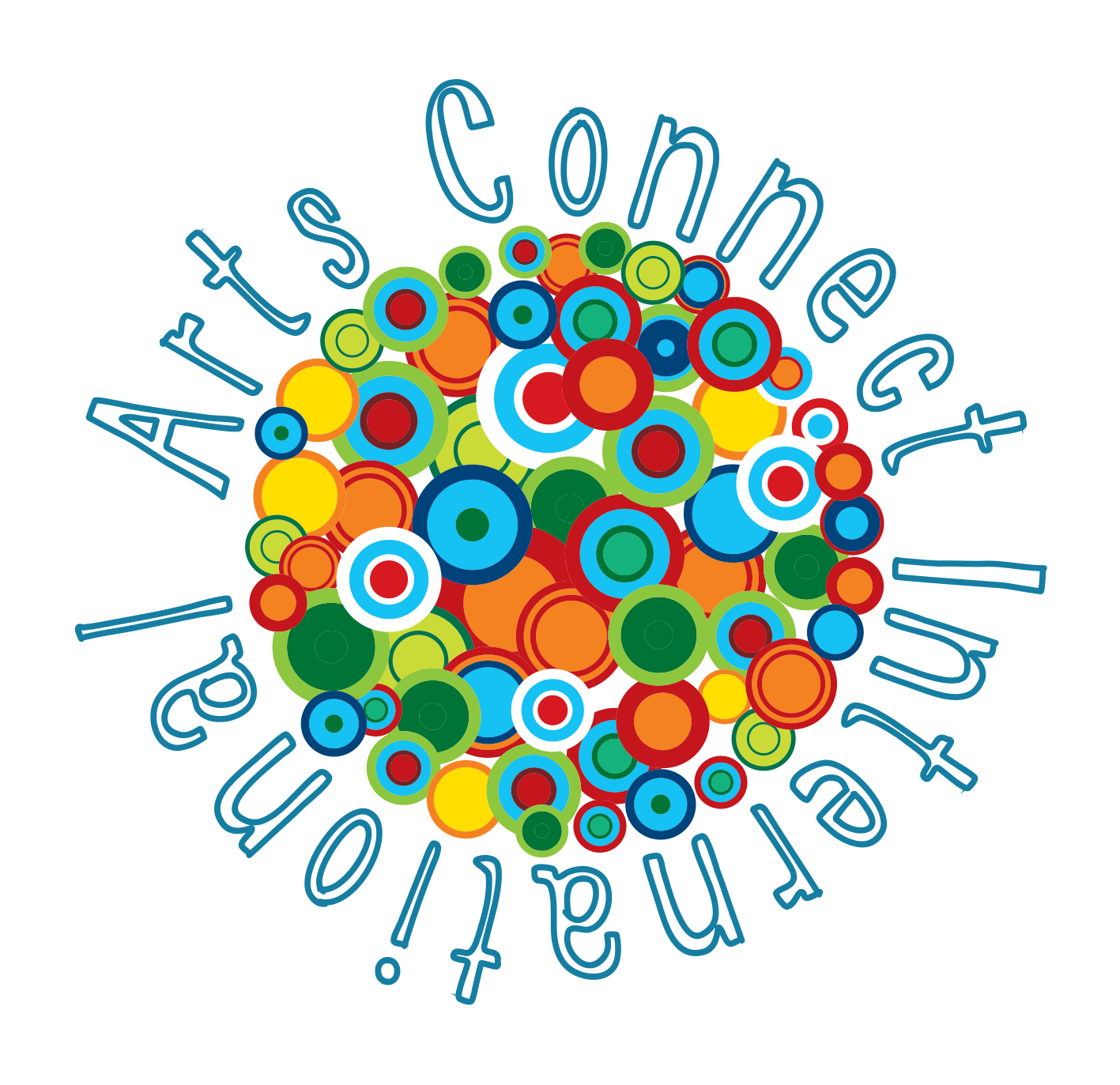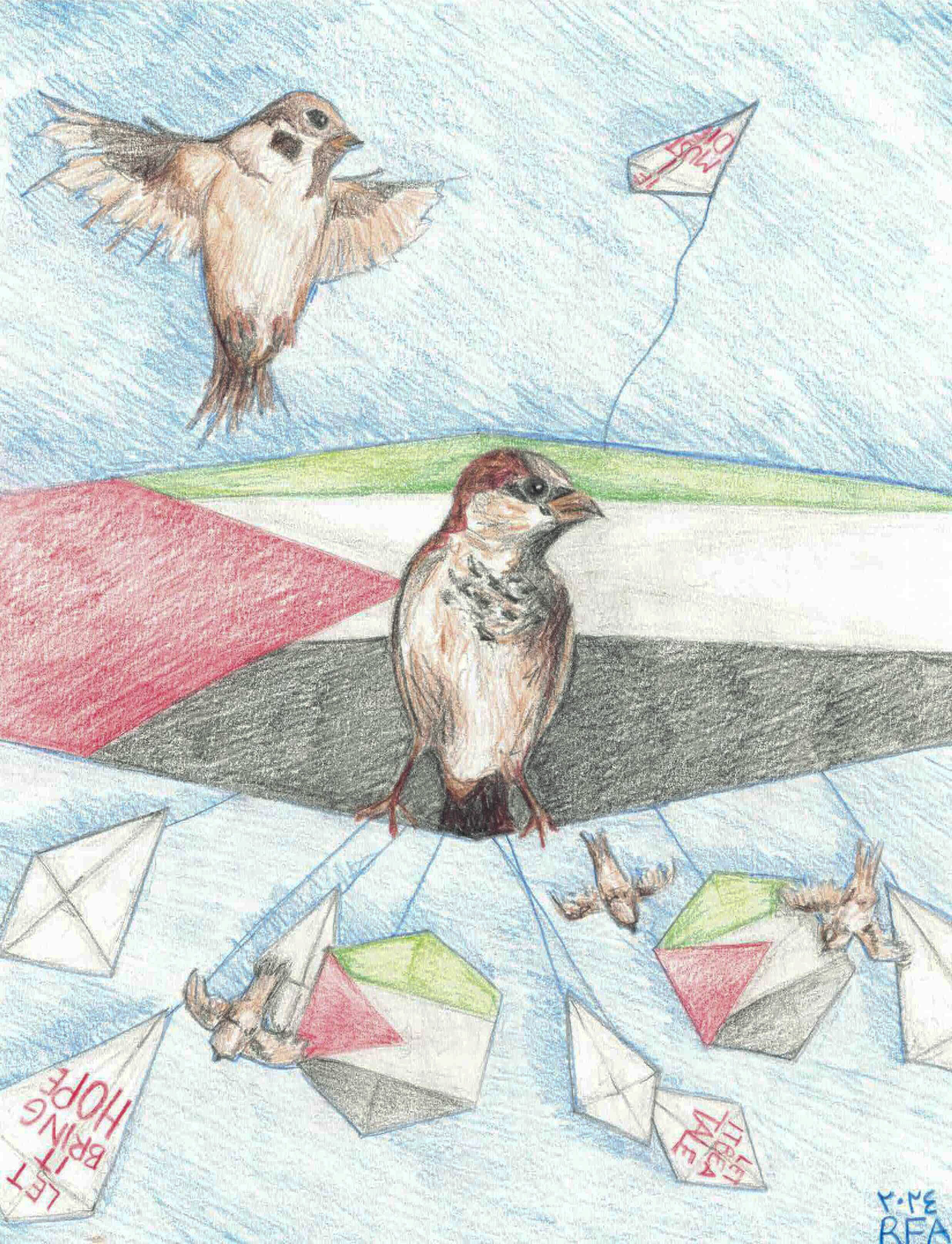Kamusta mga kasama ~ peace y’all,
Let’s notice this moment of togetherness where gravity is grounding us to a place, the universes in our bodies are growing & decaying & feeling, and we are reaching out to each other: we, a few people working together and writing to you all—and you all receiving, choosing to engage these words.
In this noticing, we invite some unified care for our bodies. As feels right for you, we invite: a breath in together (welcome air) and releasing through a shake (let body shake as releases air). We invite: the next breath in together (thank you air) and gently patting ourselves as we release (any parts of you lovingly touch other parts of you). Lastly we invite: breathing in and out, noticing the shape of air in us and the shape of us carving through the air (we are presence).
From this place of witness, we invite attention to how connections across this planet are and have been weaving tighter and vaster as we rely more on global migrations of people and resources via the internet and machinery. Emergencies like the COVID-19 pandemic reveal that this interconnectedness is infused with complex responsibilities for one another. For centuries, masses of oppressed peoples have leaned into these times of apocalypse, understanding our liberation and futurity depends on each other. We see this in the international uprisings of summer 2020 and we see this across current movements calling for a Free Palestine, Free Congo, Free Sudan, Free Haiti, Free Guam, Land Back—a freer world guided by Indigenous sovereignty.
[Image description: A hand holds a watermelon growing in the shape of a heart. On the hand’s index finger, there is a gold ring that reads: “alhamdallah” in Arabic writing.]
As we field the complexities surrounding us, we want to offer perspectives we have been moving through in community:
No people in and of themselves are our true enemy. A shared enemy is how people design and use systems (governments, social orders, armed forces) to control who is “human” by deciding what happens to “non-humans”. (Inspired by Azi Khalili)
Ceasefire now. We are responsible for each other. As descendants and survivors of genocides, wars, and legalized violence, we know it is our duty to halt any genocide as swiftly as possible.
Reactionary formations by survivors of immense violence are not new. For example, the 1994 genocide against the Tutsi in Rwanda was deeply shaped by Belgian colonization and the actions/lack thereof by foreign powers including the United Nations. We invite you to engage Hyppolite Ntigurirwa, 2016-2017 ACI Artist-in-Residence, a child survivor of this genocide who uses art toward cross-generational healing.
Multiple United Nations General Assembly resolutions acknowledge the legitimacy of peoples’ struggles for independence, territorial integrity, national unity, and liberation from colonial and foreign domination and foreign occupation “by all available means, including armed struggle”. International Humanitarian Law (IHL) recognizes that violence underpins the current world order, and thus IHL does not seek to stop armed conflict from happening, but to give rules to how armed conflict is conducted (“IHL, War Crimes, and Counterinsurgency in the Philippines”, Webinar by International Coalition for Human Rights in the Philippines-US & Liyang Network USA).
Colonialism as defined by the Oxford Dictionary is “the policy or practice of acquiring full or partial political control over another country, occupying it with settlers, and exploiting it economically.” This is a colonial war happening in Palestine.
“Why do we wait for those carrying the batons to speak when our bruised bodies tell the whole truth? I know that I am native not because Jabotinsky said so; I know that the Zionists have colonized Palestine without the need to cite Herzl, and I know this because I have lived it because the ruins of countless villages provide the material evidence of this calculated ethnic cleansing.” (“Palestine: ‘Women and Children’ and the Politics of Appeal”, lecture by Mohammed El-Kurd).
State repression works to punish the voices of people who deeply know and are close to violence, while ironically employing the fallacy of “cancel culture” to play victim of a systematic censorship we only actually see harming the multiply oppressed. We witness this in the targeting of Palestinians in public spaces/arenas, including this experience Dalal shares and the censure of Rashida Tlaib: the only Palestinian-American in U.S. Congress.
In a moment of collectively grieving the similarities of survival strategies in our unique lineages, bashexo reminded us that empires really do not change what they do very often—nor their methods/logics/techniques for doing it. This gives us time to learn from one another, strategize, and build solid communities for present, future, lasting, thriving generations.
These genocides are attempted genocides. We organize with and/or as Wampanoag; Black peoples whose ancestors survive trans-Atlantic enslavement; Palestinians; Tutsis; Lumadnon; Taínos; Khmer; Kanaka Maoli; Jews; and heartbreakingly more peoples who have been targeted by ethnic cleansing. There are each of us in the future. We are all each others’ future.
[Image description: A sign that reads, “they tried to bury us, they didn’t know we were seeds”.]
We make a few invitations as we leave the shared space of the letter form. We invite you to join the global strike for Gaza by taking any of the following actions:
Speak up and stand against unequal and unjust censorship and to be a voice of multiplicity, that tries to value and uplift diverse and on the ground perspectives.
Call for a ceasefire in Gaza in ways that feel authentic to your community.
Educate yourself and your people, and take further action with any of the following resources:
BuildPalestine’s Trusted Organizations to donate to Palestine list
The Middle East Children’s Alliance (MECA)’s Teach Palestine list
These are a short list of many resources out there. We encourage you to find ones that are relevant and practical for you.
in solidarity,
The ACI Co-Director Team (mica, Andrea, T’Ajmal, and Marian) with support from Rayan as ACI’s Creative Justice Fellow
[Image description: A sparrow sits on top of a kite resembling the Palestinian flag. Below the kite are more kites flying in the air, and other sparrows flying beside them. Some of the kites read lines from Dr. Refaat Alareer’s poem “If I Must Die”.]




